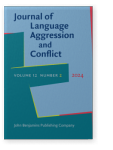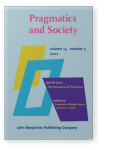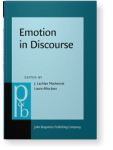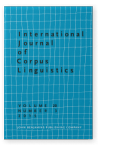Miguel-Ángel Benítez-Castro
List of John Benjamins publications for which Miguel-Ángel Benítez-Castro plays a role.
2024 They were not radical, even when they committed that: An appraisal-driven discourse analysis of feelings and attitudes towards the 17-A terrorist cell in Barcelona Journal of Language Aggression and Conflict 12:2, pp. 139–170 | Article
Identity conflict and the loss of meaning experienced by some Muslim young people in Western countries are key factors behind fanaticism, leading some of them to find purpose in life within extremist groups (Adam-Troian et al. 2021; Moyano and González 2021). The narrative that emerges from the… read more
2022 “I Am Proud to Be a Traitor”: The emotion / opinion interplay in jihadist magazines The Discourse of Terrorism, Hidalgo-Tenorio, Encarnación and Juan L. Castro (eds.), pp. 501–531 | Article
Neojihadism taps successfully into the Internet’s influence to disseminate its oppression narrative of Muslims vs. non-believers (Al Raffie 2012). Whilst this type of radicalisation has received attention from psychoanalysis (Kobrin 2010), jihadist discourse is in need of more exhaustive… read more
2022 A semi-supervised algorithm for detecting extremism propaganda diffusion on social media The Discourse of Terrorism, Hidalgo-Tenorio, Encarnación and Juan L. Castro (eds.), pp. 532–554 | Article
Extremist online networks reportedly tend to use Twitter and other Social Networking Sites (SNS) in order to issue propaganda and recruitment statements. Traditional machine learning models may encounter problems when used in such a context, due to the peculiarities of microblogging sites and… read more
2019 Chapter 12. Rethinking Martin & White’s affect taxonomy : A psychologically-inspired approach to the linguistic expression of emotion Emotion in Discourse, Mackenzie, J. Lachlan and Laura Alba-Juez (eds.), pp. 301–332 | Chapter
Utterance production/interpretation depends unmistakably on emotional contexts. This makes the analysis of emotion in language fascinating and difficult, as it permeates all levels of linguistic description. Appraisal Theory is a powerful instrument intended to capture the subtleties of emotion in… read more
2015 Shell-nounhood in academic discourse: A critical state-of-the-art review International Journal of Corpus Linguistics 20:3, pp. 378–404 | Article
Numerous studies to date have investigated the cohesive, evaluative and formal features of semantically unspecific abstract nouns such as objective or assumption. These nouns share the property of ‘shell-nounhood’, associated with their ability to package and characterise complex discourse segments. read more



